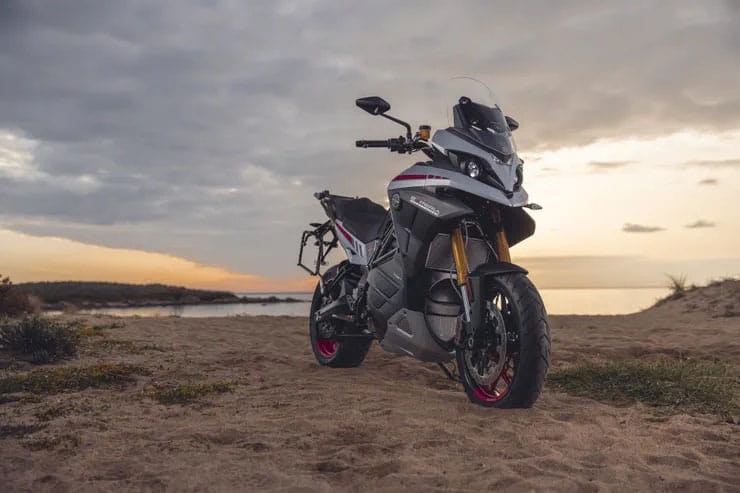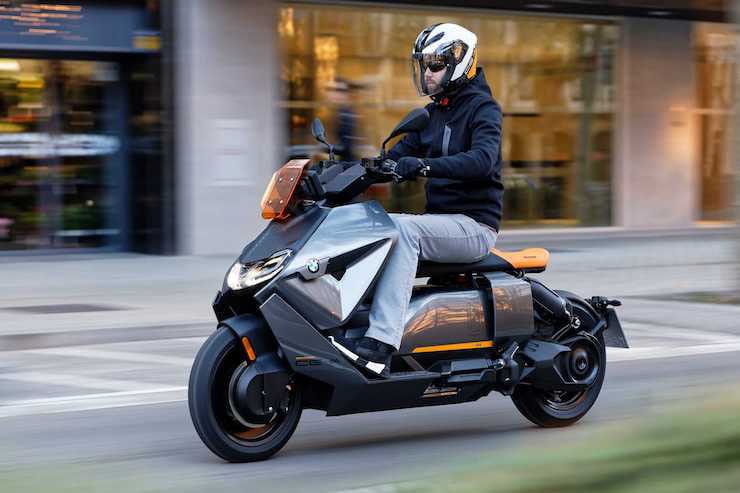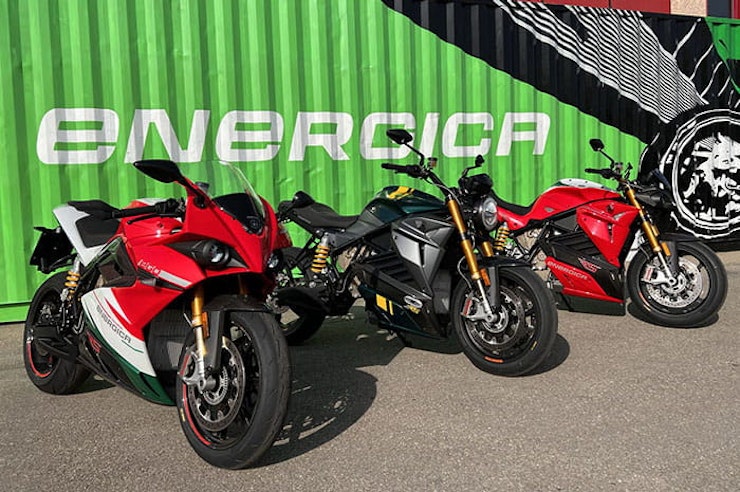The MAG (Motorcycle Action Group) has aired concerns that the incoming mandatory switch to electric or alternative power for all-new motorcycles in the UK will have a major impact on the market.
The sale of new motorcycles equipped with fossil fuelled ICEs (Internal Combustion Engined) is due to cease in 2035 as part of legislation aimed at reducing carbon emissions and forge a greener future for the planet.
However, it is a timeframe largely dictated by the voluminous four-wheel market, an industry that has seen manufacturers introduce a broad range of alternatively powered options alongside ICE models, with annual sales of such vehicles showing sustained growth in recent years.
By contrast, the motorcycle industry has reacted more sluggishly, in part because integrating frugal-orientated electric powertrains into an already economical, lightweight and tightly-packaged machine brings dynamic, ergonomic and aesthetic headaches.
As such, sales - though rising- are doing so at a much slower rate, with EVs accounting for just under 6% of all new motorcycles purchased in the UK in 2022. By contrast, EV or hybrid cars made up 23% of new car sales in the UK last year.
Despite this, both cars and motorcycles are bound by the same upcoming deadline, leading to fears that a forced change from ICE to electric power will significantly damage the new motorcycle market as potential buyers turn off and err towards used models.
“The enforcement side, bikers as a group of people don’t like being told what to do,” Colin Brown, MAG’s Director of Campaigns and Political Engagement, told BikeSocial. “The question marks over electrification, even the manufacturers recognise that electric may not be the solution for all applications, so there is certainly a lot of noise about synthetic fuels and hydrogen.
“The vast majority of motorcyclists value variety and choice, so while an electric motorcycle might be OK for that application, but i would rather have synthetic fuel and an ICE for another application.
“The problem we have in the UK is that legislation is geared towards having zero emissions from the tailpipe, therefore it doesn’t fit the policy.”
“Attitudes will naturally change as the pool of people who ride them will change too, so I suspect the danger is that an enforced change too quickly will effectively diminish the existing market and not be replaced by a new market.
“When you look at the wide policy around motorcycling, transport policies are aimed at reducing the number of privatised transport and motorcycles fit into that category. So they want a reduced pool of people doing this, so they won’t shed a tear if the number of motorcycle enthusiasts reduces, it will be a tick in a box for them.”
A 2021 survey conducted by MAG that gauged opinion on the impending phase out of fossil fuels among the motorcycling community revealed 55% of those asked were opposed to the legislation, with 31% suggesting they were prepared to quit riding altogether.
Two years on, the electric motorcycle market has broadened in terms of choice, with recent new additions like the Energica Experia and Zero DSR/X designed to challenge perceptions of what EV power can achieve.
With this in mind, Brown believes the figures will have evolved but is certain there will be a sizeable proportion of those who won’t be prepared to adopt electric power on two wheels.
“Some opinions will change and modify as time goes by. Part of that will be changes driven by technology. We conducted a survey and somewhere around 30-35% of people said they wouldn’t continue riding motorcycles.
“I suspect that is an emotional response than what would happen when they get there, but there will be an element of people for whom they will cling onto their combustion engine for as long as they can.
“MAG as an organisation is working hard to make sure we are not put in that decision where you have to make that kind of choice.”
Share on social media:


